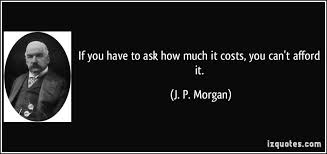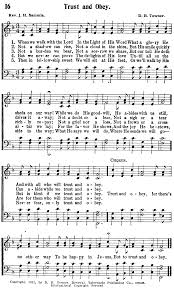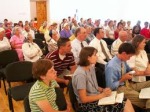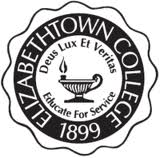 Why Should/Shouldn’t My Church Embrace Change? Part XXI
Why Should/Shouldn’t My Church Embrace Change? Part XXI
To understand the five fold relationally, one must understand its purpose and mission. Is the five fold to be offices to govern the church or are they passions desires and points of view of believers in Jesus? Let’s continue to look at their purpose and mission.
For Individual Christian Growth
“…..until we all attain to the unity of the faith, and of the knowledge of the Son of God, to a mature man, to the measure of the stature which belongs to the fullness of Christ. ….. we are to grow up in all aspects into Him who is the head, even Christ,” (Ephesians 4:13, 15)
The second purpose of the five fold is for individual maturity, the growing up “in all aspects” into “fullness of Christ.” Paul wrote in verse 14, “We are no longer to be children, tossed ….. and carried,” but we are “to grow up,” to learn to stand and walk as “a mature man, to the measure of the stature which belongs to the fullness of Christ.”
 Evangelical churches that emphasize “birth” are usually weak in Christian growth. They see large numbers get saved, but later move on to more nurturing congregations. Pediatricians help with your birth and early childhood development, but if you go to one as an adult, you got a problem. Pediatricians are for children, not adults! Christians who often chose to stay with their spiritual pediatrician, the evangelist, remain childlike in their faith, never quite maturing. They will always prefer milk over meat. Physically we are destined to grow as humans, but that is not true spiritually. We grow only as much as we allow the Holy Spirit to penetrate our lives. Spiritually we can choose to be babied by our professional church staffs, or we can stand and learn to walk in the Spirit. It is our choice!
Evangelical churches that emphasize “birth” are usually weak in Christian growth. They see large numbers get saved, but later move on to more nurturing congregations. Pediatricians help with your birth and early childhood development, but if you go to one as an adult, you got a problem. Pediatricians are for children, not adults! Christians who often chose to stay with their spiritual pediatrician, the evangelist, remain childlike in their faith, never quite maturing. They will always prefer milk over meat. Physically we are destined to grow as humans, but that is not true spiritually. We grow only as much as we allow the Holy Spirit to penetrate our lives. Spiritually we can choose to be babied by our professional church staffs, or we can stand and learn to walk in the Spirit. It is our choice!
How do we learn to grow? Churches offer Bible studies on discipleship telling you “how” to grow. The five fold has brothers and sisters, relationally, walking out your growth with you, standing with you, teaching you to take a stand in your faith walk by experiencing it with you. As younger siblings look up to older siblings, Paul exhorts younger men and women to “hang out” with older men and women for just this purpose: to grow by example! Youth offers zeal, but if tempered with wisdom and experience from an older brother or sister will see mature growth.
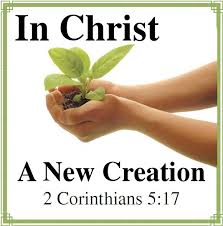 The purpose of the five fold is “to grow up in all aspects into Him who is the head, even Christ.” We measure our growth by how much we portray the image of the Father, the Son, Jesus, and the Holy Spirit. In Genesis 1:26, “God said, “Let Us make man in Our image, according to Our likeness.” We are to be God-ly, Christ-like, and obedient to the Holy Spirit. It is an awesome task which can be attained because Jesus modeled it! He hung out with twelve ordinary men, stood by them, led them, covered their backs, accepted them, nurtured and cared for them, and eventually died for them, all for the purpose of drawing them closer to his Father to make them “godly”. “I and the Father are one.” (John 10:30) When you read about these same twelve in the book of Acts, your see totally transformed men who are “godly” and “Christ-like” in so many ways! The four gospels are about their five fold relational walk with Jesus, and the book of Acts is about their “growth” in becoming a “mature man” in the “image of Jesus Christ”.
The purpose of the five fold is “to grow up in all aspects into Him who is the head, even Christ.” We measure our growth by how much we portray the image of the Father, the Son, Jesus, and the Holy Spirit. In Genesis 1:26, “God said, “Let Us make man in Our image, according to Our likeness.” We are to be God-ly, Christ-like, and obedient to the Holy Spirit. It is an awesome task which can be attained because Jesus modeled it! He hung out with twelve ordinary men, stood by them, led them, covered their backs, accepted them, nurtured and cared for them, and eventually died for them, all for the purpose of drawing them closer to his Father to make them “godly”. “I and the Father are one.” (John 10:30) When you read about these same twelve in the book of Acts, your see totally transformed men who are “godly” and “Christ-like” in so many ways! The four gospels are about their five fold relational walk with Jesus, and the book of Acts is about their “growth” in becoming a “mature man” in the “image of Jesus Christ”.
That is the goal of the five fold: to mature the saints, to help them “grow up” into the image of the Godhead!



